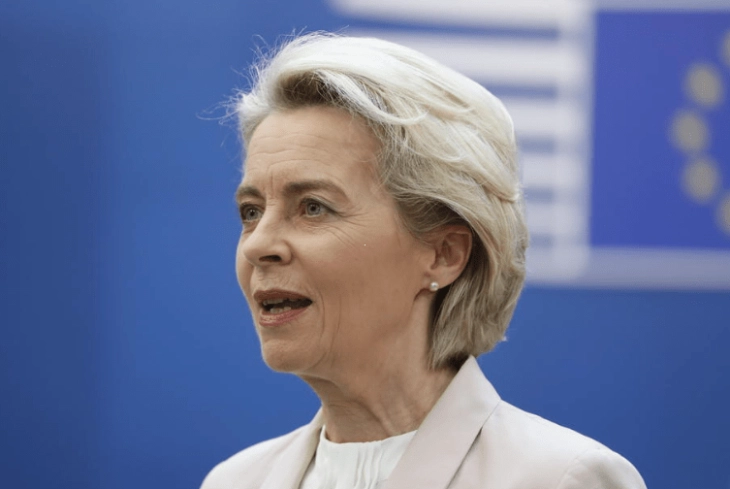Warsaw donor conference raises billions in aid for Ukraine refugees

Warsaw, 10 April 2022 (dpa/MIA) - An international donor conference for Ukraine refugee aid in Warsaw has brought in donation and loan pledges totalling €9.1 billion ($9.9 billion).
"Our courage must be shared by all in the world," Ukrainian President Volodymyr Zelensky urged in a video message on Saturday.
"We want to rally the whole world to be able to help the refugees inside and outside Ukraine," European Commission President Ursula von der Leyen said in the Polish capital as she announced the commission's pledge of €1 billion.
In addition to the billions in donations, the European Bank for Reconstruction and Development (EBRD) would provide €1 billion in loans for displaced people, she said. This brings the total to €10.1 billion, said von der Leyen.
German Chancellor Olaf Scholz said in a video message that Germany would provide an additional €425 million in humanitarian and development aid for Ukraine and its neighbouring states. In addition, there would be €70 million in medical support. "Germany stands by Ukraine," Scholz said.
Russian President Vladimir Putin's war has triggered a humanitarian crisis that is getting worse, noted Canadian Prime Minister Justin Trudeau, who joined the conference.
On her way to Poland early on Saturday, von der Leyen expressed shock at the Russian army's actions in the town of Bucha, where hundreds of bodies of civilians were found following the withdrawal of Moscow troops.
"My instinct says: If this is not a war crime, what is a war crime, but I am a medical doctor by training and lawyers have to investigate carefully," she told journalists.
She said she also saw first hand how the Russian military was targeting civilians. "Residential buildings are no military target."
She said the European Commission offered Ukraine a joint investigation team.
"Because it is extremely important, that it is well documented, to prevent defeats in court because the evidence is not good enough," added von der Leyen, who visited Bucha while in Ukraine.
The donor conference was convened by the non-governmental organization Global Citizen, the European Commission and the Canadian government.
The money is intended for projects run by the United Nations and local aid organizations, for example. The conference was preceded by a social media campaign in which musicians, actors and athletes participated. The motto was "Stand Up for Ukraine." Pop stars from Elton John to Céline Dion called for donations.
Since the beginning of the Russian invasion on February 24, more than 2.5 million Ukrainians have already crossed the border into Poland. According to the UN refugee agency UNHCR, a total of around 4.4 million people have already left Ukraine.
More than 700,000 people from the separatist regions of Donetsk and Luhansk and other parts of Ukraine have been evacuated to Russia since February 24, according to military sources in Moscow.
On Saturday alone, almost 27,000 people left the embattled regions for Russia, said Colonel General Mikhail Mizintsev of the Russian Defence Ministry.
Mizintsev said that 134,000 people had been rescued from the southern Ukrainian port city of Mariupol, which has been under heavy fire by the Russians since the beginning of March.
According to Russia's TASS news agency, he once again accused the Kiev side of allowing an escape for harassed civilians only to Ukrainian-controlled territory, not to Russia.
Russian figures cannot be independently verified.
However, Kiev accuses the Moscow side of bringing refugees to Russia against their will. This, it says, is a violation of international law.
In the days before the invasion, the Russian authorities had already used buses and trains to fetch civilians from the separatist areas in eastern Ukraine, because there was allegedly a threat of an attack by the Kiev military. However, there was no evidence of this.
The UN's International Organization for Migration (IOM) said this week that 7.1 million people have been forced to leave their homes but remain within the war-torn country's borders.
Before the Russian war of aggression began, 44 million people lived in the country.







